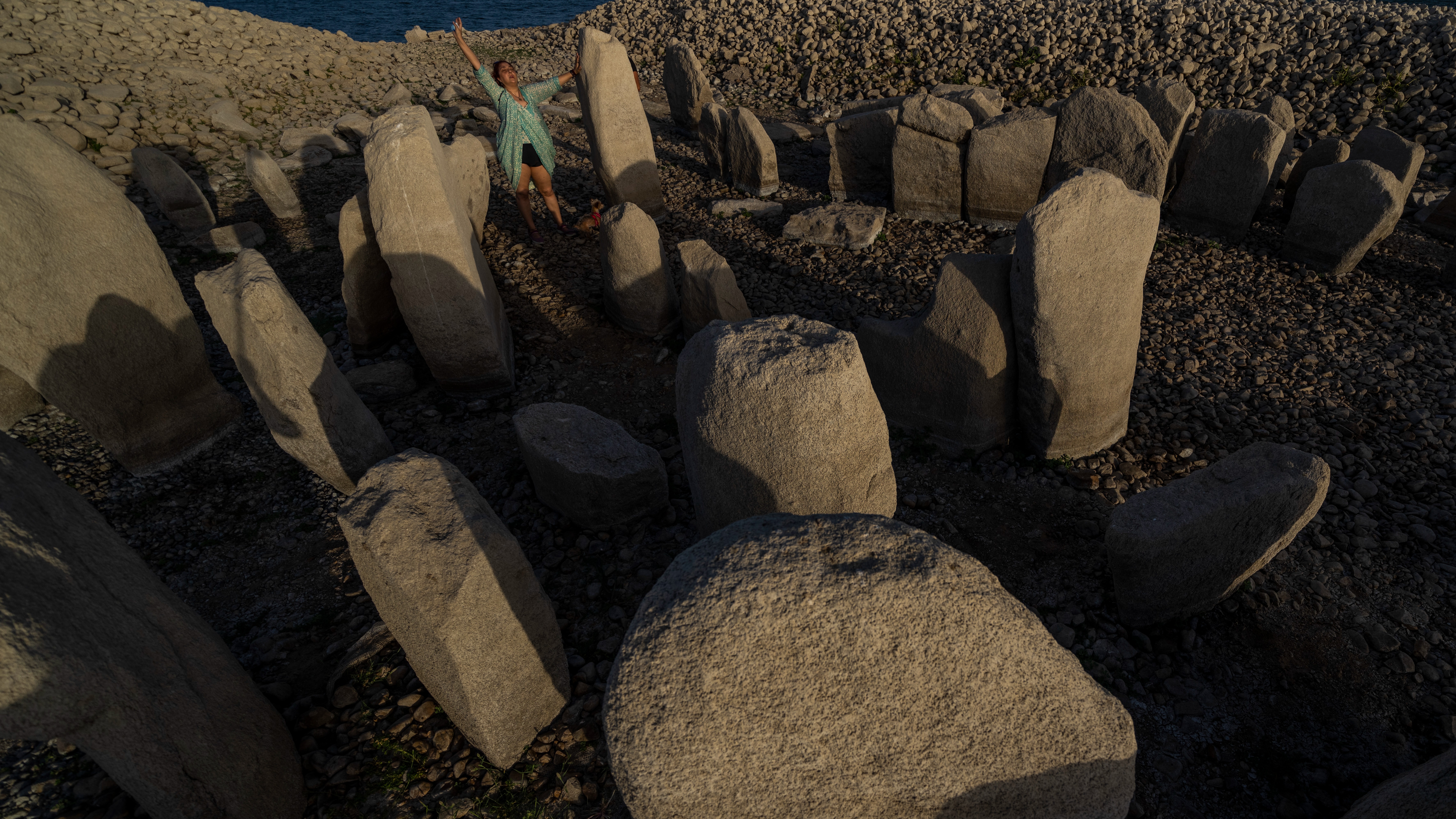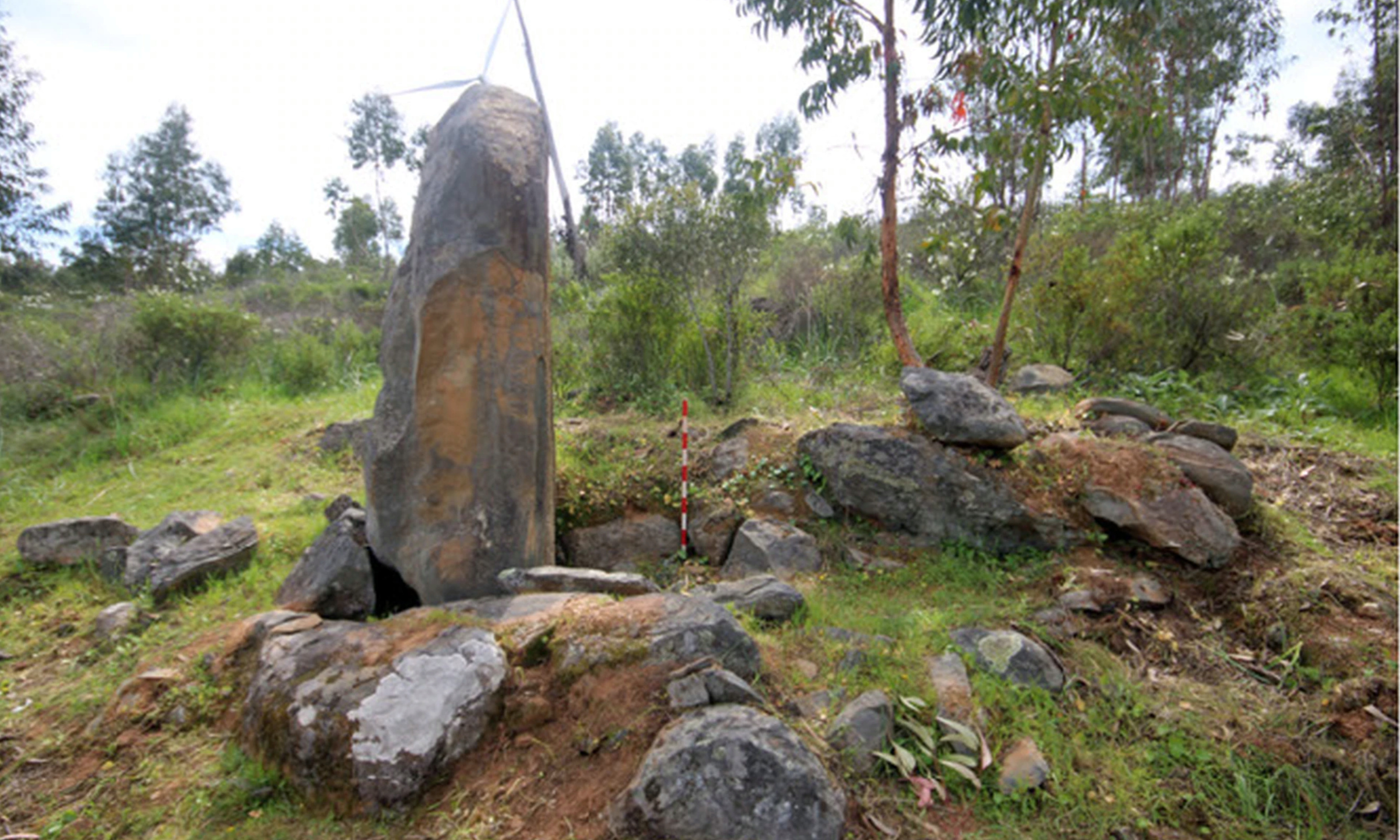Anthropology
Related: About this forum'Spanish Stonehenge' dating back 7,000 years emerges as water levels recede
Friday 19 August 2022 at 11:46am

The circle of dozens of megalithic stones is believed to date back to 5000 BC.
Credit: AP
A summer of heatwaves and the worst drought in decades for rural Spain, has revealed a prehistoric stone circle in a dam whose waterline has receded.
Its official name is Dolmen of Guadalperal, but it is affectionally called Spanish Stonehenge.
The circle of stones is believed to date back to 5000 BC.

More:
https://www.itv.com/news/2022-08-19/spanish-stonehenge-dating-back-7000-years-emerges-as-water-levels-recede
Judi Lynn
(163,352 posts)August 20, 2022
1:07 AM CDT
Last Updated an hour ago
Reuters
2 minute read
Aug 20 (Reuters) - Weeks of baking drought across Europe have seen water levels in rivers and lakes fall to levels few can remember, exposing long-submerged treasures - and some unwanted hazards.
In Spain, suffering its worst drought in decades, archaeologists have been delighted by the emergence of a prehistoric stone circle dubbed the "Spanish Stonehenge" that is usually covered by the waters of a dam.
Officially known as the Dolmen of Guadalperal, the stone circle currently sits fully exposed in one corner of the Valdecanas reservoir, in the central province of Caceres, where authorities say the water level has dropped to 28% of capacity.
It was discovered by German archaeologist Hugo Obermaier in 1926, but the area was flooded in 1963 in a rural development project under Francisco Franco's dictatorship. Since then it has only become fully visible four times.
More:
https://www.reuters.com/world/europe/europes-drought-exposes-ancient-stones-world-war-two-ships-waters-fall-2022-08-20/
Judi Lynn
(163,352 posts)Standing stones discovered on a piece of land — spanning about 600 hectares — in Huelva in Spain
Maroosha Muzaffar
17 hours ago

Huge complex of more than 500 standing stones discovered in southern Spain. Screengrab
(NewszTech / Youtube)
Archaeologists have discovered more than 500 standing stones on a land that was earmarked for avocado plantation in southern Spain, according to reports.
Experts believe it is one of the world’s largest complexes of monoliths in Europe. The standing stones were discovered on a piece of land spanning 600 hectares in Huelva in Spain.
Archaeologists had sought permission from the Spanish authorities to survey the land because they believed it had historical significance. That is how they discovered the huge complex of monoliths.
“This is the biggest and most diverse collection of standing stones grouped together in the Iberian peninsula,” José Antonio Linares, a researcher at Huelva University and one of the project’s three directors, was quoted as saying by AFP.
More:
https://www.independent.co.uk/independentpremium/world/megalithic-complex-spain-europe-b2148727.html
Judi Lynn
(163,352 posts)
Archaeologists have discovered the largest megalithic complex in Spain near Heulva, on the southwestern border with Portugal. An extraordinary profusion of more than 500 menhirs, dolmens, stone cists, circular enclosures and standing stones have been documented at the site, plus associated finds like extraction areas, engravings, dry stone structures and quartzite hammers. Samples from the site are still in the process of being dated, but preliminary estimates are that the first vertical stones were erected between the Middle Neolithic to the Early Bronze Age, from the 5th millennium B.C. to the 2nd. The sacred spaces were then reused over the centuries.
The megaliths were found in 2018 during a survey of a 600-hectare farm whose owner wanted to plant avocadoes. Andalusian authorities would only grant a permit for the avocado plan on condition that archaeologists get to explore the site first. Several megaliths have been found in the area before and previous farming of the land had significantly altered the landscape, so archaeologists were dispatched to perform an intensive surface survey before the estate was further transformed by agricultural use.
The team recorded all of the visible megaliths and documented four delimited groupings: a group of dolmens, a set of menhirs and two stone circles. They documented 526 megaliths in different shapes and sizes, most of them erected close to the outcroppings where the builders had sourced the stone.

One of the most striking things was finding such diverse megalithic elements grouped together in one location and discovering how well preserved they were, said Primitiva Bueno, co-director of the project and a prehistory professor at Alcalá University, near Madrid.
More:
http://www.thehistoryblog.com/archives/64917